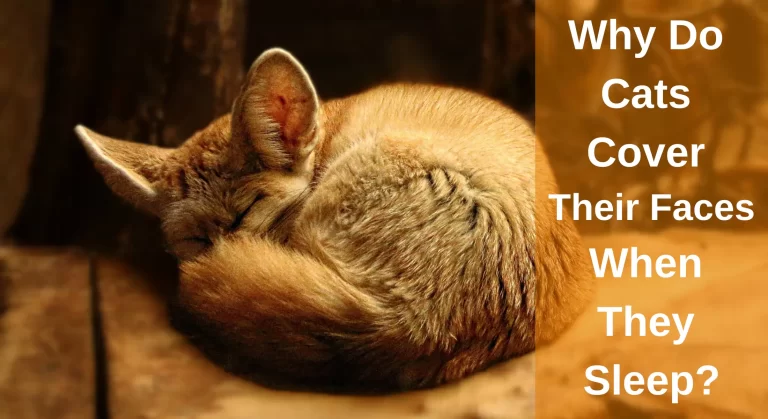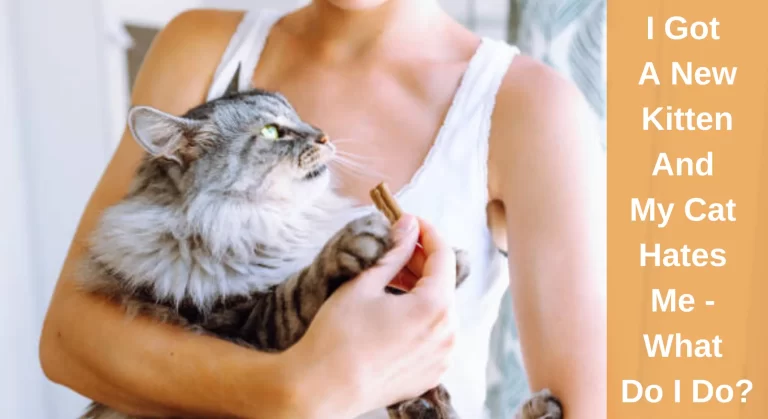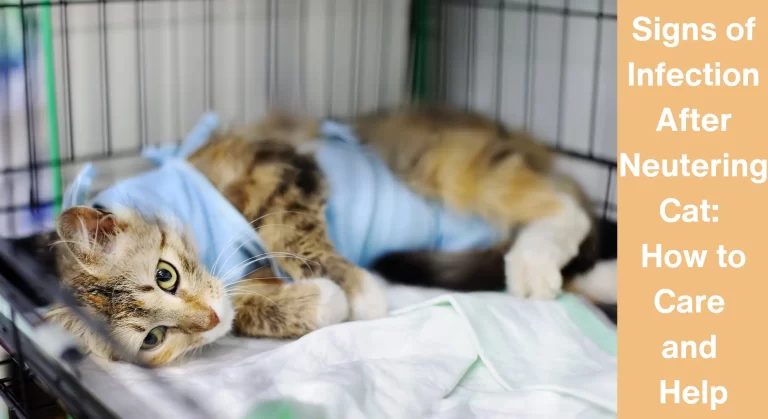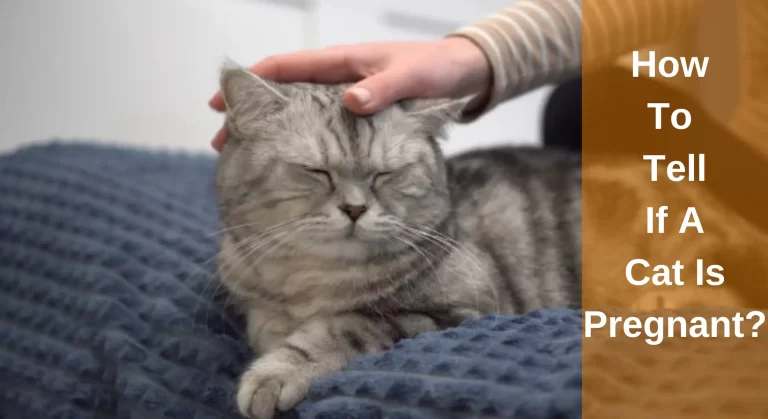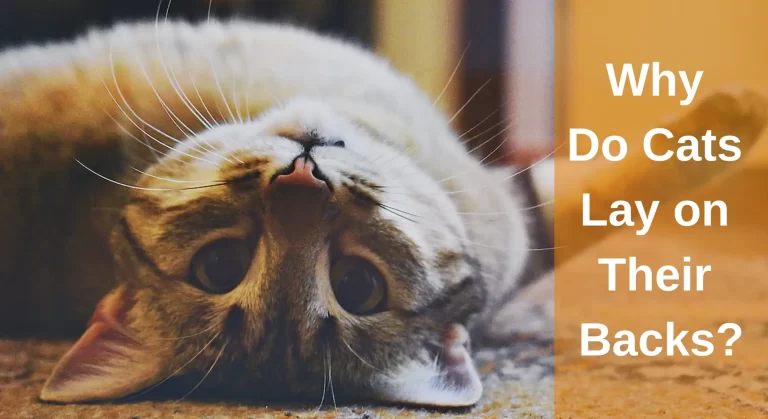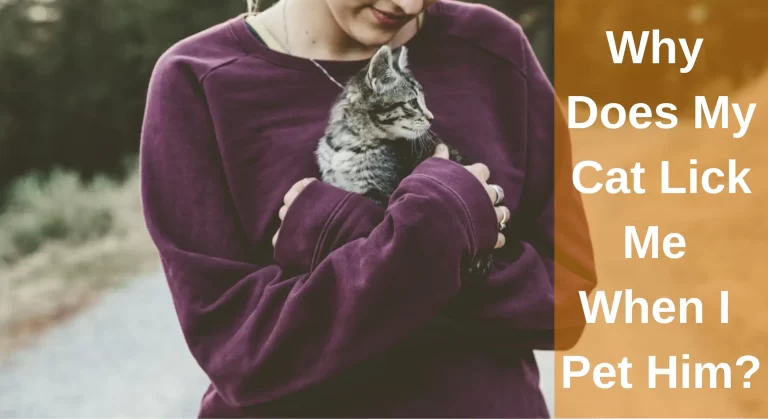Why Do Cat’s Noses Get Wet When They Purr? All You Need To Know
Did you ever calmly cuddle your cat while purring, and it suddenly thrust its moist, gooey nose on your arm or hand? It may appear to be an accidental occurrence when it happens once. However, if the feline’s nose drips or is consistently moist when it makes a loud purring sound, you may question whether something else is occurring. Why Do Cat’s Noses Get Wet When They Purr
The reason behind this is that the nasal cavity is hairless. The sebaceous glands start to work during feline purring, and the nose becomes damp due to the lack of hair to shield it. So, it’s quite a natural phenomenon, and don’t worry about it.
However, you may don’t know the main causes behind your feline’s nose dripping while purring. So, in this post, I’m going to explain several typical reasons behind this behaviour and many other interesting facts! So, let’s delve into the details:
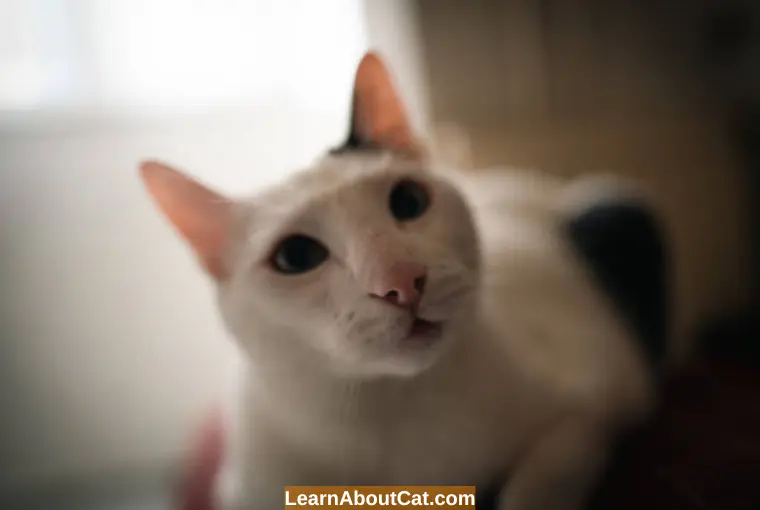
Why Is My Cats Nose Dripping When Purring?
Dripping the noses of felines while purring is generally because they feel calm and contended. It’s a reflex to pleasure, and it isn’t rare. Cats’ nose often leaks or run when they purr, but it doesn’t mean that they salivate.
Many treatable conditions can cause felines to have wet noses, such as allergens, nasal bugs, infestations, and other cold symptoms.
Each of them makes your cat’s nose wet and runny. So, cats seem to have runny noses pretty frequently, and it’s quite normal. However, discharge may come out of both nostrils, but its colour might be intriguing; coloured discharge may indicate that there’s some problem with your cat.
Reasons Why Is My Cat Nose Wet When Purring?
As a cat owner, you love your felines and always pay attention to their well-being. However, the running noses of cats intrigue many cat owners, and they frequently ask why my cat’s nose gets so wet when I pet her.
So, here are a few main causes of your cat’s runny nose while it purrs.
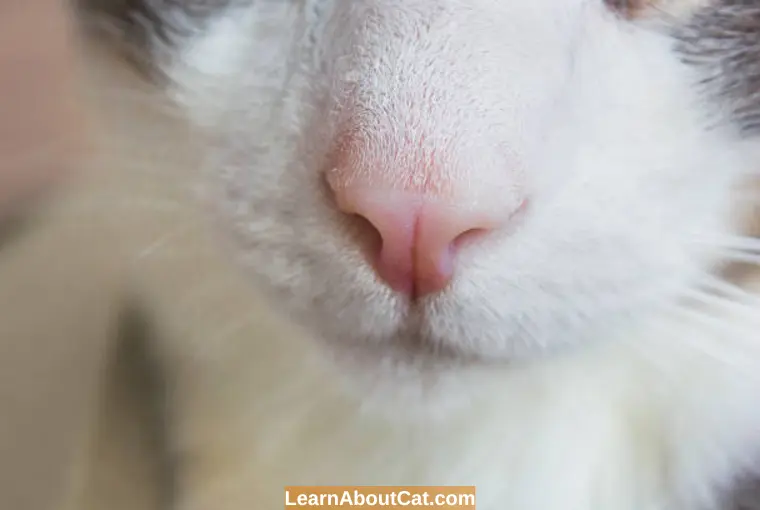
1. Sweat Glands Become Active
Due to numerous sebaceous glands and lack of hair in a cat’s nasal cavity, a runny nose helps your cat regulate its body temperature. Cats frequently have a somewhat moist nose because of this. But other factors besides heat might cause a sweaty nose. Additionally, purring is believed to cause sweat glands to open and make the nose wet. So, if your feline precipitates a lot, running nose is the cause of water to discharge from the nose.
2. Cats Love to be Pampered
Mother cats frequently wipe their babies’ noses because kittens’ nostrils flow more than those of adults do. Even if it seems disgusting to us, many kitties may enjoy having wet noses! When we purr cats or kittens, they feel like they’re with their mother. Also, they feel safe, content, and relaxed. Cats with “happy dribbling” frequently experience runny noses when we purr or rub them; this reaction is rare but not unusual.
3. Your Cat Might be Drooling
If your feline drools frequently, it may also run down its nose. Cats who drool a lot occasionally have watery nostrils when they drool. Your felines also salivate when they feel a pleasure reaction, a sign of pending hunger, or simply a hereditary trait. Elderly cats and kitties drool more and have runny noses than adult cats.
4. Contact with Allergens in the Air
Cats’ noses may also flow due to exposure to any allergic pollutant or atmospheric allergens. These allergens include dust parasites, plant-based irritants, tobacco smoke, fungal pollen, particular foods, litter box dust, and many others!
If your cats have an environmental allergy, they’ll show the following symptoms:
- Sniffling
- Breathing hard
- Rye sludge
- Nose disease
- Eyes or skin itching
- Pain and swelling
You can also notice additional signs if your cats have a runny nose due to allergens or other irritants.
5. Breathing Infection
If your cat has a respiratory disease, it may experience some nose dripping as you’re petting them. Respiratory diseases are commonly caused due to bacteria and fungi.
6. Eye Issues
If your cats have running noses, they may also have some problems with their eyes. As you know, the nose and eye are interconnected, and problems with one of them may affect the other. Your cat may experience eye problems for a variety of reasons, such as cataracts, allergens, infectious diseases, viral diseases, or any other object stuck in their eyes.
Why My Cat Nose Drips When Happy?
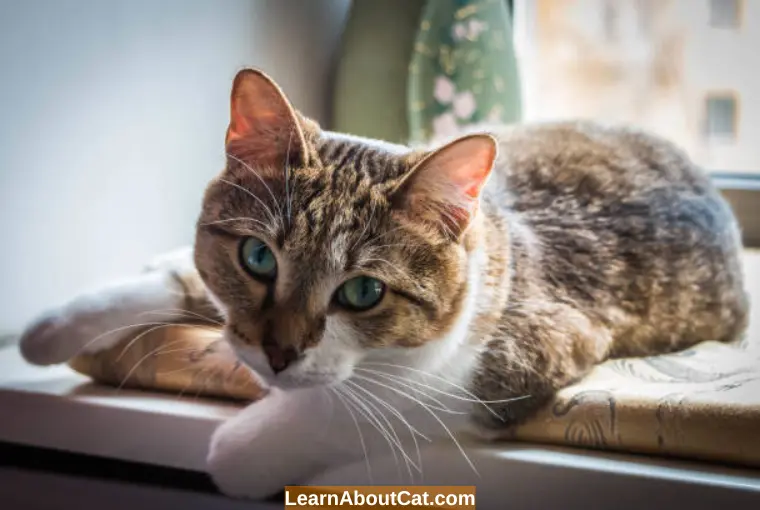
Drooling is a common behaviour in felines if they’re joyful or terrified since it might reveal a cat’s emotions. A small amount of drool is making your feline’s nose wet. Drool often doesn’t indicate anything wrong. However, if your cat’s nose becomes excessively wet for a prolonged time, it’s a sign that your feline might be facing some issues.
Check Out: Why Is My Cat Drooling But Acting Normal?
Does a Wet Cat Nose Mean They’re Happy?
If your felines have wet noses frequently, it’s a sign of happiness. Because a wet nose indicates that the cat is relaxed and feels comfortable. However, a dry nose in cats typically indicates that they aren’t feeling well. Cats may also have a moist nose for various reasons, such as after cleaning themselves with their tongue or even if it is ill.
Cats Nose Dripping: Is It Normal?
Yes, cats’ drippings and wet noses are typical. But sometimes, a severe watery discharge from the nose is a result of an illness or other medical problem rather than being a disease as a whole.
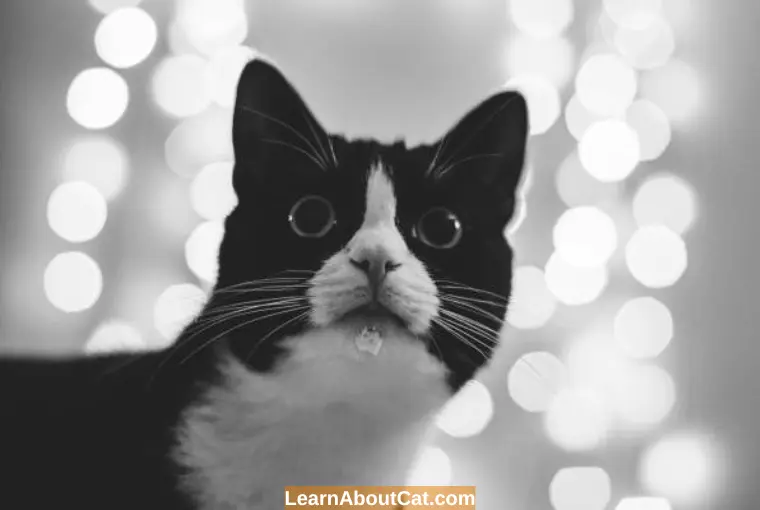
A flowing nose is usually brought on by a trigger that stimulates or provokes the nose walls. There may be a runny discharge coming from both nostrils or even one of them. Moreover, the colour of the nose discharge also indicates whether everything’s normal or not.
Even if nothing seems out of the usual and only your nostril is flowing, a more serious problem could still exist.
How Should I Treat a Cat’s Runny Nose?
The course of treatment depends on what caused the nasal discharge. You can do the following treatments to avoid the runny nose of your feline:
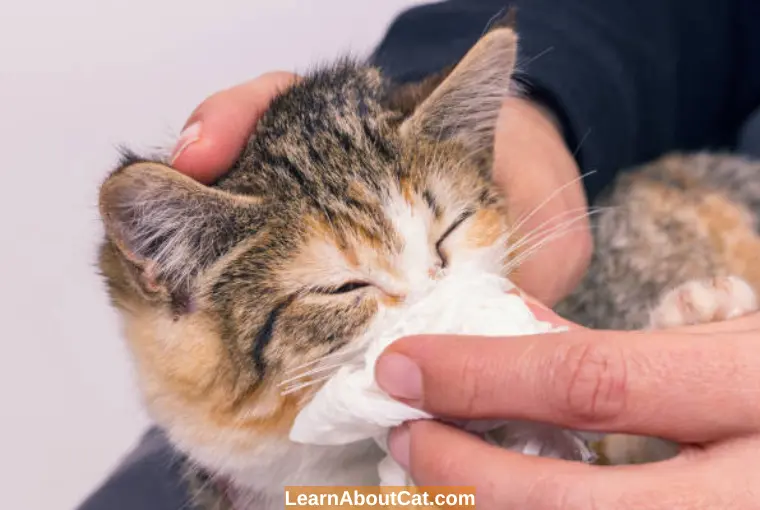
- Antibiotics can treat bacterial illnesses. Your vet will provide anti-fungal medicine. Decongestants might also be recommended.
- Severe upper airway viral illnesses can occasionally be treated with antiviral drugs.
- Wipe your feline’s wet nose with a soft and clean towel. Also, wipe their running eyes with a towel and saline water. This will make them feel better if they have a cold.
- Keep the environment moist and prevent it from becoming extremely dry; for this purpose, you can use a humidifier.
- If your cat faces difficulty breathing while having a running nose, give them steam for 15 minutes, or you can also nebulize them.
- Give your feline a healthy diet so that it’ll recover more quickly.
- Keep your felines warm by maintaining their body heat; thus, give them an extra blanket and place them in a warm place.
When Should I Go to the Vet?
Even though a runny nose isn’t a reason to panic, sometimes it may indicate additional sickness signs, particularly if it persists. When your cat exhibits other symptoms of illness, such as eye inflammation, puffiness or itching, excessive sniffing, thick, peculiar runny nose, and pains, you must take it to the vet.
Red or green nose discharge, fatigue, a loss of appetite, severe inflammation, and breathing difficulties are more severe symptoms. These symptoms may indicate a serious illness rather than just a minor cold or virus.
Frequently Asked Questions
Why does my cat’s nose get wet when he kneads?
When you knead your feline, his nose flows with pleasure because she’s enjoying being loved by their owners. Moreover, kneading also memorizes them of their kittenhood when their mother kneads them while eating, and that cosy sensation lasts into adulthood.
Why does my cat’s purring sound wet?
If your cat’s purr sounds wet, it means that there is a fluid buildup that prevents them from breathing and is typically brought on by an illness. There may be other signs that lead to this issue in your cats, such as irritants, allergens, respiratory diseases, nasal issues, and much more!
Are runny noses a sign of poor health?
Wet noses are common in felines, just like in us. Although they can indicate allergies, illness, or disease, however, most watery noses aren’t a problem. Natural causes like variations in humidity and body temperature also cause wet noses.
Why is my cat’s nose dripping with water?
When inflammation, toxic, or pathogenic invaders affect the nasal cavity, it makes your nose wet. It might also be the result of a foreign substance getting stuck in the nose. An inner ear infection in your cat could reduce natural fluids and trigger the body to release unnecessary mucus. Moreover, respiratory illness, eye infections, lungs issue, and many other problems.
However, if your cat’s nose is running normally, then it’s natural, so don’t worry.
Is it bad to kiss your cat on the nose?
No, you can kiss your felines on their nose, as you know that noses are dirty parts of the body. Moreover, you don’t know where cats wander all time. So, there are many chances that they’ve parasites or bacteria on their nose that may also affect their health.
Final Thoughts
There are several explanations for why your feline’s nose starts to leak while purring. The most common reason behind this is the stimulation of sweat glands due to excessive sweating. When this happens, you just need to clean your felines’ noses with a clean towel and carry on cuddling them.
But if a runny nose also includes some sort of green or red discharge, it could be a sign of an underlying condition, an infection, or an allergen. Calling your veterinarian to check out any major health issues is a wise decision when your cat displays any other abnormal findings.
Related Posts:
- Why Do Cats Purr When You Pet Them?
- Why Do Cats Purr When They Sleep?
- Why Is My Cat Drooling When Purring?
- Why Does My Cat Purrs And Bites Me Gently?
- Do Cats Stop Purring When They are Dying?
- Do Cats Purr When They Are in Pain?
- Can Cats Control Their Purring?
- Why Is My Cat Breathing Fast And Purring?
- Why is My Cat’s Nose Changing Color?
Who is Isabella?
My name is Isabella, and I am a dedicated and knowledgeable cat enthusiast. With years of experience caring for cats and a deep love for felines, I made a mission to help other cat lovers navigate the challenges of cat ownership.

